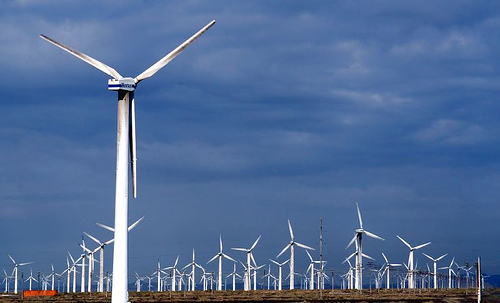Monday, 23/02/2026 | 18:54 GMT+7
The Government and private organizations today are increasingly aware of the opportunities to save through the efficient use of energy. According to estimates, ASEAN can save up to USD 43 billion if Member States actively apply high-tech strategy to increase energy efficiency. For Thailand, the savings could reach as much as USD1.1 billion from power savings in the commercial and industrial sectors.
For the development goals of the ASEAN Economic Community block (AEC) to be achieved in the next decade, the Member States should significantly increase the energy supply. Besides strengthening the construction of additional power plants, the search for energy saving measures is the urgent task to maintain the momentum of development of the ASEAN block. The infrastructure construction projects integrated with solutions can increase the efficiency of energy use; it can help investors save substantially right from the starting line without having to bear the financial or operational risks. So why with such potentials, the methods for efficient use of energy have not been widespreadly applied?

One of the leading reasons is the gap between policy goals and policy enforcement. Accordingly, the government agencies responsible for energy efficiency policy should strengthen their cooperation to avoid duplication. Relying on a regulatory framework is not sufficient when the effectiveness of policies depends on the ability of law enforcement agencies, and the standards and mechanisms to ensure strict adherence. Some countries still have subsidies for fossil fuels, making the real cost of energy production hidden and market distorted.
It is found that a comprehensive policy framework with a combination of mandatory regulations and voluntary policies and enforcement measures to enhance energy efficiency is absolutely necessary. In parallel to the communication about the energy efficiency for consumers, the governments need to eliminate energy subsidies. The investment into energy efficiency program may be costly in the early years but would bring significant savings over the long term.
In addition, the private sector should not stand outside, passively waiting for the government. Many companies in the ASEAN countries may not have perceived the potential savings, so they are not serious about saving energy. Therefore, countries need to strengthen the training, the system of certificate, standardization, and dissemination of accurate information on suppliers, energy saving products and energy services supply companies (Escos).
Many energy-saving projects need improvements of their process, with drawbacks in large-scale installation, leading to greater investment cost, and longer payback period. Meanwhile, it is the energy-hungry corporations do not want to invest for such costly projects. Banks also offer a number of loan programs for this category, but they normally cooperates with Escos. Smaller energy service suppliers are not so lucky as to convince banks to lend capital.
To remove those barriers, the energy industry should come to an integrated value chain. Instead of following the old paths relying on available products, the companies should provide services to bring consumers the overall solution and guarantees, total service packages by exploring financial options, such as BOT (build-operate-transfer). Local government and corporations can lease equipment with efficient use or flexible application of public-private ownership if long-term ownership is not intended.
Moreover, joining hands with the energy production units is a solution to solve the constraints of professional incapacity. This positive approach can help a lot of service companies provide solutions "turnkey" within the payback period.
In summary, in order to encourage the energy efficiency projects, the service companies need the ability to provide operational services and ensure net savings through secured bonds; the contracts must be transparent with Key Performance Indicators (KPIs) with reliable assessment scales, prospective return, benefit sharing to optimize the efficiency. Also, it is needed to transfer all the risks associated with the investment costs, operating costs, operational efficiency of the plant ... from customers to service providers. Finally, the service companies can be flexible, to withdraw from the agreement and transfer all fixed assets to clients while still managing the project to regulate the expansion of the customers or of contracts in the process of implementing the agreement.
With the rise of the ASEAN Economic Community (AEC), energy savings represent a crucial role ensuring the ascent of the whole block without affecting the environment. The management of the industry and trade will be decisive for the lives of millions of people in the 30 coming years. Therefore, in considering the energy solutions, it is to remember that the energy of saving instead of wasting is the cheapest, friendly and green energy in the world.
Trong Tan








 Consultation on the methodology for developing and updating energy consumption standards for four major industrial sectors
Consultation on the methodology for developing and updating energy consumption standards for four major industrial sectors
 Opening of the 2025 Energy-Efficient Equipment and Green Transition Exhibition Fair
Opening of the 2025 Energy-Efficient Equipment and Green Transition Exhibition Fair
 Energy-saving solutions and green transition promotion
Energy-saving solutions and green transition promotion
 The 9th VEPG Steering Committee Meeting: Strengthening Coordination for Viet Nam’s Just Energy Transition
The 9th VEPG Steering Committee Meeting: Strengthening Coordination for Viet Nam’s Just Energy Transition